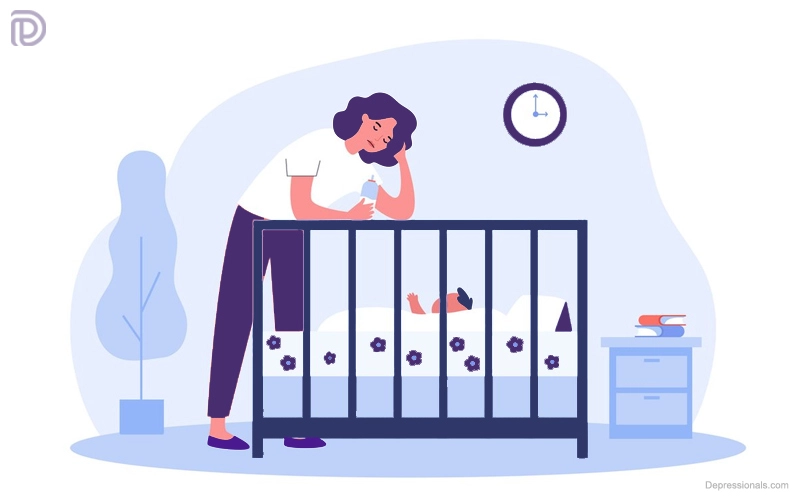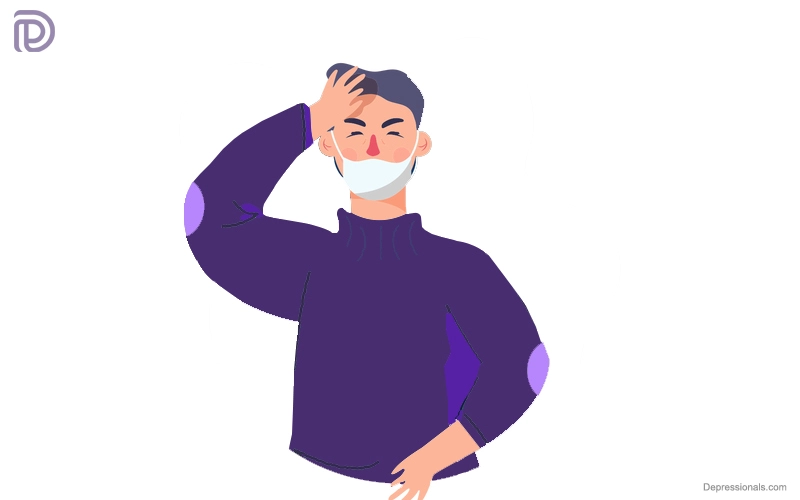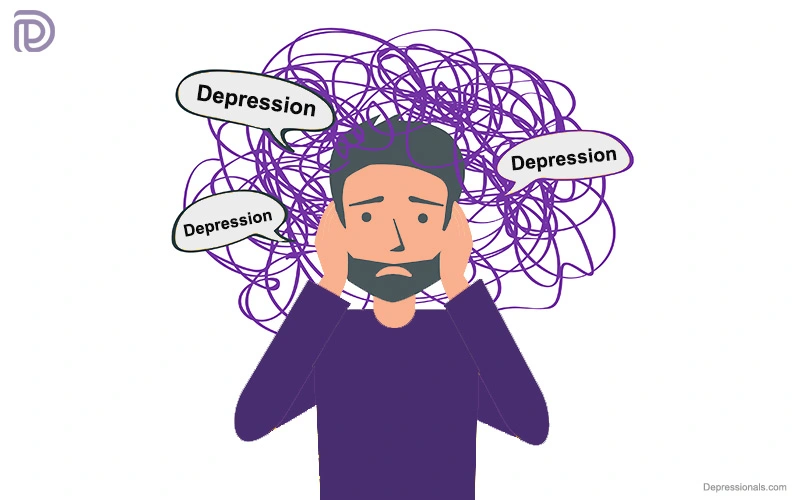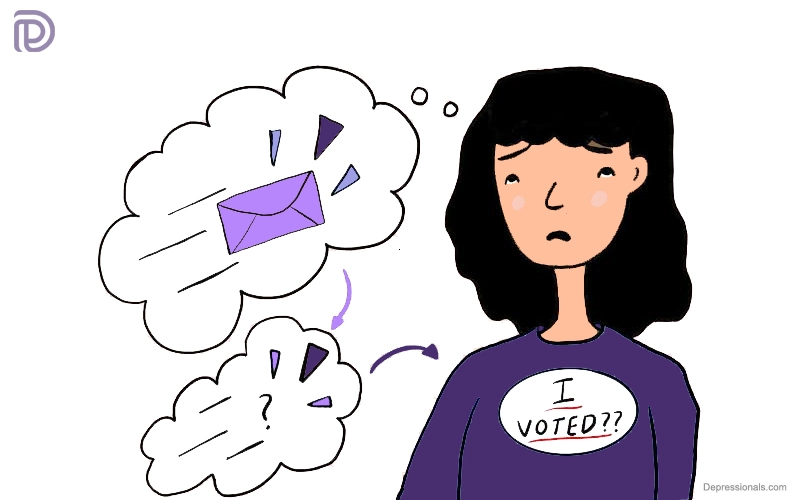Postnatal depression affects about 1 in 10 women. You can recover more quickly with the help of family, friends and sometimes a health visitor. Cognitive-behavioral therapy and antidepressant medication are also treatments that can be used for depression.
It is estimated that 80 percent of women who have a baby will experience ‘baby blues’ between days three and ten after they give birth. Postnatal depression (PND) is different from the feeling described here. It is estimated that around one of every seven to ten mothers develops PND.
The after-effects of postpartum depression usually occur within 12 months of giving birth to a child, usually during the first couple of months. This can happen gradually or suddenly and range from a mild, transient feeling to a severe and lingering feeling. The majority of women will pass through it quickly, but others will require professional assistance.
The most common cause of postpartum depression is after the first pregnancy. During pregnancy, some women suffer from depression (known as antenatal depression). Postnatal depression and antenatal depression are collectively known as perinatal depression.
A woman suffering from antenatal and postnatal depression may experience low self-esteem, guilt, feelings of inadequacy, sleep difficulties, and panic attacks, depending on the severity of the depression. Partners can suffer from depression before and after having a child.
Women suffering from PND can benefit greatly from the support of family, friends, and partners. Both childbirth and postpartum depression strain relationships greatly.
Women suffering from postnatal depression may isolate themselves from everyone, including their partners and children. She must receive the support of her family members, especially her partner, to help her recover.
Read: Biology of Depression
Symptoms of postnatal depression
The severity of depression determines the range of symptoms, which may include:
- Lack of self-confidence and low self-esteem
- Feelings of guilt and inadequacy
- Negative thoughts
- Life seems meaningless to you
- Not being able to cope
- Irritability and tears
- Changes in sleep patterns or difficulty sleeping
- Feeling anxious, panicky or palpitating
- An appetite loss
- Concentration and memory problems
Check another type of Depression: Bipolar Depression
Risk factors for postnatal depression

PND’s exact cause is still unknown. Here are some factors that might contribute:
Physical changes
A woman’s body can be overwhelmed even by a fairly straightforward delivery. As well, pregnancy hormones suddenly drop, which affects brain chemicals (neurotransmitters). Depression can also be caused by a lack of sleep and exhaustion.
Emotional changes
It’s difficult to adjust to parenthood. Her relationship with her partner has a different dynamic and she loses her independence as well as her constant demands from her baby. Women are already dealing with a lot when they are physically recovering from childbirth, but this is even more difficult when they are also struggling with sleep deprivation
Social changes
Women may feel pressured to live up to society’s demands and expectations as new mothers. She may find it difficult to maintain contact with friends and coworkers. It may also be difficult to live on a single wage.
Related: Social Anxiety Disorder
Mothers’ relationship with their babies during postnatal depression
When a woman has PND, she tends to isolate herself from everyone, including her child. There is nothing wrong with her and she is not a ‘bad’ mother because of this. Some people still believe that bonding between a mother and her child can only occur within the first few days of birth or else it won’t happen at all. Obviously, this isn’t true.
Mothers and their babies have a continuing relationship. Getting over the depression will allow the mother to enjoy her baby again and feel all of her emotions. Family and friends may need to help her in the meantime.
Fathers can also develop PND
Research shows that 1 out of 10 fathers experiences psychological distress after giving birth. Risk factors for PND in fathers and partners include:
- Older age
- First-time parent
- Friend group of a small size
- Support and interaction with others are limited
- Limited education
- Life events causing stress
- Relationship quality with wife or partner
- Mental health history
- Physically unwell
Recommended: Multiple Strategies To Control Overthinking
Family support and postnatal depression
PND can also cause a woman to withdraw from her partner. To be successful, family members must support you. An important role for her recovery can be played by her romantic partner.
Relationship stress and postnatal depression
A patient, supportive, and loving spouse can put tremendous strain on any relationship during postpartum depression. The PND experience makes many couples believe their relationship is beyond repair.
Relationships generally return to normal once the depression is lifted, which is rarely the case. When in the grip of PND, you should postpone any major life decisions.
Couples experiencing PND can benefit from the following suggestions:
- Take time to learn about PND.
- Consider that relationship problems may be triggered by PND rather than vice versa.
- Communicate openly.
- Be careful not to take one another’s moods or criticisms personally.
- Taking big career or relationship decisions now is not a good idea.
- Exercise or meditation can be useful techniques for managing stress.
- Talk about the household duties to avoid arguments and resentments.
- Try to get away from the baby occasionally and spend a night out together.
- Don’t hesitate to seek professional assistance.
Related: What Is a Toxic Relationship?
Helping a partner experiencing postnatal depression
You might consider the following suggestions if you are the partner of a woman who has postnatal depression:
- You must be patient.
- Let your partner know how you feel.
- It’s okay to accept their feelings – don’t trivialize them by telling them to ‘get over it’ or ‘snap out of it’. Take the time to understand their perspective.
- Be careful not to take their criticisms personally.
- Don’t allow visitors if they aren’t feeling social.
- Help around the house by asking family members to babysit.
- Provide baby care, housework, and emotional support.
- Tell them often that you appreciate what they do and that you love them.
- If they feel low about their appearance, don’t criticize their post-pregnancy body or suggest they lose weight.
- When you spend workdays apart, keep in touch during the day. During the week, have lunch together.
- Give your partner a break while you care for your baby, promoting your parent-child relationship.
- You can talk about your concerns with your partner to their GP (doctors), midwife, pediatrician, or maternal and child health nurse, or call PANDA (1300 726 306) for support.
- When your partner initially refuses to see the doctor, consult the doctor yourself for information and advice.
- Your partner will recover from PND if they receive the appropriate support and help.
Related: How to Help Someone with Depression
How to cope with postnatal depression
New parents need to take care of their own physical and emotional well-being. The following suggestions are included:
- Don’t forget to take some time for yourself, apart from work and your family.
- Do what you can to maintain important interests and hobbies.
- Feel free to share your concerns and feelings with friends.
Suggestions for family and friends
Helping someone with PND can be accomplished in several ways; some of them include:
- Take time to learn about PND.
- Keep your patience and understanding.
- Find out what you can do to help the couple.
- Offer to babysit.
- Make yourself available to help with chores around the house.
- You can be there for the mother even if she doesn’t feel like talking.
- You should be aware that the demands of new parenting may also affect the father emotionally.
Related: How to Get Out of a Depressive Episode
Postnatal depression help and support
Women suffering from postnatal depression have access to many types of support.
Families and friends can play a crucial role in the recovery process for a woman suffering from PND. She might also find it helpful to make discussions about her feelings, particularly with other women in support groups or with a professional counselor – such as through Perinatal Anxiety and Depression Australia’s (PANDA) national helpline (Tel. 1300 726 306). More serious cases may require the use of anti-depressants or other medications.
A person with PND should keep in mind that it is a temporary condition that will improve with time.
Recommend: Mental Help Resources






Thanks for any other informative blog. Where else may I get that kind of information written in such a perfect means? I have a undertaking that I am simply now operating on, and I’ve been at the glance out for such information.
I saw a lot of websites but I think this one has something special in it